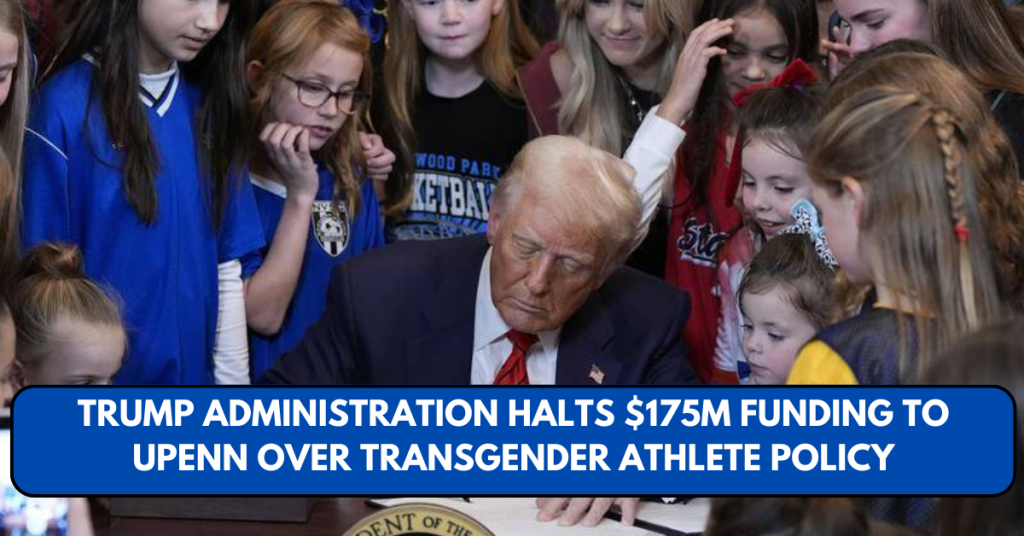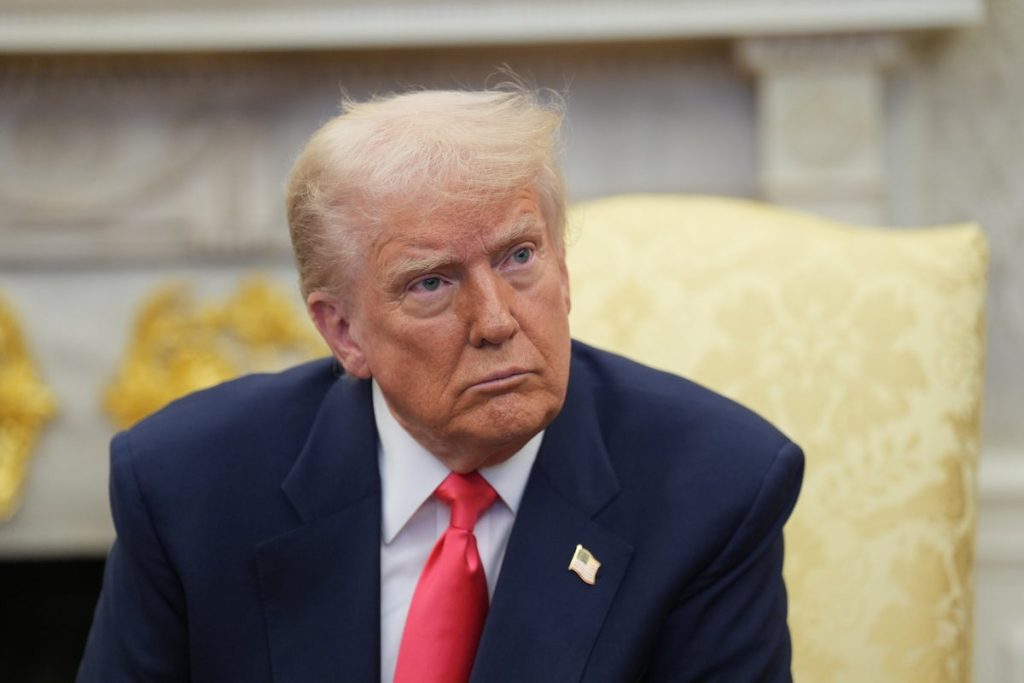
The Trump administration has frozen approximately $175 million in federal funding to the University of Pennsylvania (UPenn), citing concerns over the institution’s policies allowing transgender athletes to compete in women’s sports. The move, part of a broader initiative to regulate gender participation in athletics, follows an ongoing Title IX investigation into the university.
Funding Suspension and Justification
According to officials from the Department of Education, the suspension of federal funds stems from UPenn’s adherence to National Collegiate Athletic Association (NCAA) and Ivy League policies permitting transgender women to participate in female sports categories. President Donald Trump, who has made transgender athlete participation a focal point of his administration’s education policies, signed an executive order titled “Keeping Men Out of Women’s Sports”, reinforcing restrictions against transgender athletes competing in categories that do not align with their birth-assigned sex.
The federal funding pause primarily affects grants from the Department of Defense (DoD) and the Department of Health and Human Services (HHS), two of the largest sources of UPenn’s government support. The university receives close to $1 billion annually in federal grants, with the suspended amount accounting for nearly one-fifth of its total funding.
“This administration will not allow taxpayer dollars to fund institutions that ignore the basic rights of female athletes,” a White House official stated. “UPenn must revise its policies to ensure fair competition in women’s sports.”
UPenn’s Response and Legal Standing

UPenn, however, maintains that it has followed all NCAA and Ivy League regulations regarding athletic participation and has yet to receive any formal communication regarding the funding freeze. In a public statement, the university reaffirmed its commitment to inclusivity, stating:
“The University of Pennsylvania remains in full compliance with Title IX and NCAA guidelines. We stand by our policies, which are designed to ensure equal opportunity for all students, regardless of gender identity.”
The NCAA has previously upheld rules allowing transgender women to compete if they meet hormone therapy requirements. However, Trump’s executive order challenges these policies by emphasizing biological sex in athletic classifications.
The Department of Education’s Office for Civil Rights (OCR) is currently conducting an investigation into UPenn’s compliance with federal Title IX regulations. Title IX is a landmark civil rights law that prohibits sex-based discrimination in federally funded educational programs, including athletics. The law, enacted in 1972, has been at the center of the ongoing debate over transgender participation in sports (U.S. Department of Education)
Broader Policy Implications
The funding freeze follows the administration’s decision to cut $400 million from Columbia University due to alleged anti-Semitic incidents. The White House has signaled that further funding reviews may be applied to other institutions that permit transgender athletes in women’s competitions.
This decision has sparked widespread reactions:
- Conservative and right-wing activists have welcomed the move, arguing that allowing transgender athletes in female sports undermines fairness and violates the integrity of women’s athletics.
- LGBTQ+ advocacy groups have condemned the decision as discriminatory, arguing that it violates the rights of transgender students and contradicts previous interpretations of Title IX that include protections for gender identity.
“The administration is using federal funds as a weapon to enforce a discriminatory agenda,” said Sarah Mitchell, director of the National Center for Transgender Equality. “Title IX was meant to protect all students, including transgender athletes.”
Possible Legal Challenges and Future Actions

Legal experts suggest that UPenn and other affected institutions may challenge the funding suspension in court. Some argue that federal agencies cannot unilaterally withhold funds without due process, while others believe that Trump’s executive order provides the necessary legal basis to enforce these restrictions.
If UPenn decides to challenge the funding freeze, it may take the case to the U.S. Court of Appeals for the Third Circuit, which oversees federal cases involving Pennsylvania-based institutions. Additionally, advocacy groups could push for a Supreme Court ruling to determine the extent of Title IX’s protection for transgender athletes (U.S. Courts).
Conclusion
The suspension of $175 million in federal funding to UPenn marks a significant escalation in the ongoing battle over transgender athlete participation in women’s sports. As the Trump administration continues to implement policies restricting such participation, universities, advocacy groups, and lawmakers will likely face mounting legal and political disputes.
For now, UPenn remains firm in its position, while federal agencies proceed with their investigation. The ultimate outcome of this decision could set a precedent for future funding policies affecting colleges and universities across the United States.



